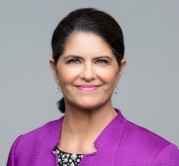Starting fresh with financial well-being for all

“Great occasions do not make heroes or cowards; they simply unveil them to our eyes. Silently and imperceptibly, as we wake or sleep, we grow strong or weak; and at last some crisis shows what we have become.” Brooke Foss Westcott
There is opportunity in crisis. An opportunity to grow and learn; an opportunity to connect our values with our mission; an opportunity to put financial well-being at the center of our strategy so we can live that mission; and an opportunity to engrain diversity, equity and inclusion into our work.
First things first – what is financial well-being? It’s not just financial education or financial literacy. It’s what folks do with their money and how they feel about their money. Financial health and well-being are deeply connected to every other part of life – housing, access to food, transportation, education, healthcare, etc.
What do you we know about Americans’ current state of financial well-being?
- More than two-thirds of people in America (167 million people) are not financially healthy, and disparities have widened by race and income and persisted across gender. (Source: 2020 U.S. Financial Health Pulse).
- More than 50 million Americans have filed for unemployment.
- One in five have seen their income reduced.
- Tens of thousands of small businesses have closed permanently.
These are our employees, members, families and communities. COVID-19 is having a massive impact on household finances which will continue into 2021. How do we, as credit unions, work to remain inclusive and focus on providing financial well-being for all?
As we head into the new year, I challenge your organization to think about these five things:
- Really know what your members/employees are going through financially right now. You can measure through surveys and you can look at transaction/data trends to see what’s going on. Make sure you truly understand what all people need and respond to that.
- Everyone is thinking about their finances daily. They are looking for help to manage their finances in these micro-moments (sending money to a loved one, contactless card, money movement), not only for the big life stages like buying a house or a car. Do you have a laser focus on the member experience as you help members through those micro-moments?
- Advancing financial well-being for all your members is strategic. It’s not just the job of marketing or community engagement. It is what credit unions do. It’s who you are. You are in the financial well-being business. Now is the time to place financial well-being at the center of your strategy and align all your services to advance your mission.
- It’s time to double down on empathy, helping your team understand what their teammates and your credit unions’ members are really going through. This can help foster a diverse and inclusive culture. Train your staff to help coach your members through these micro-moments and trying times of the pandemic.
- What can you do strategically, within your broader community, to help members with things connected to financial well-being, like food, affordable housing, healthcare, access to the internet, etc.?
Credit unions have an immense opportunity to triple down on their mission of financial well-being for all as we head into an uncertain 2021. The Foundation is here with resources to help you in this financial well-being journey including webinars, video series, free empathy e-school, tips for practicing empathy at work and Exploring Our Values free self-guided course.

